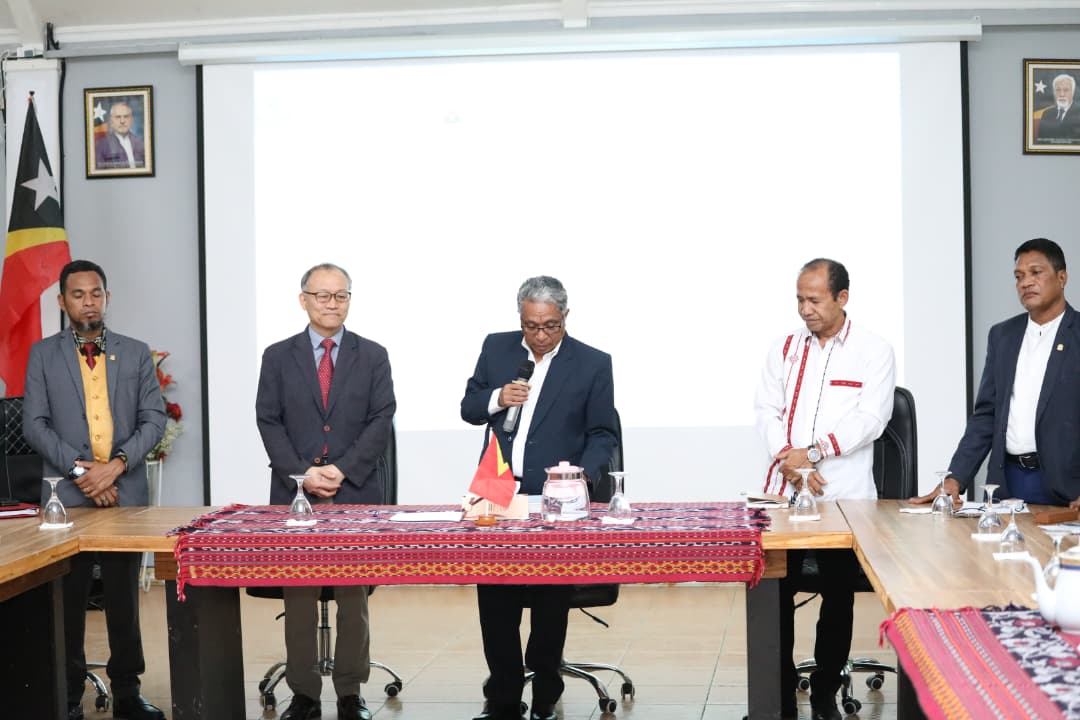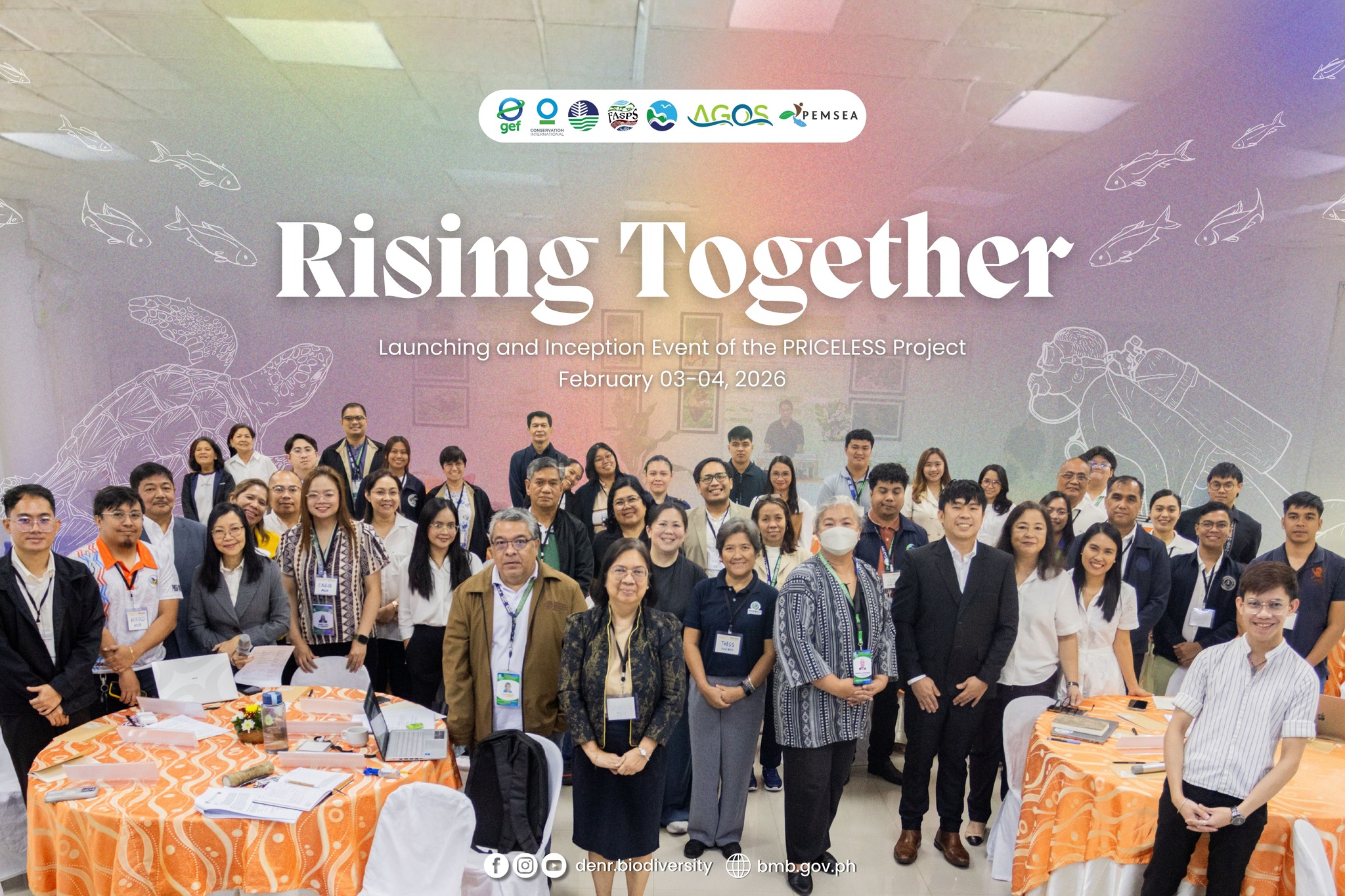PEMSEA Joins ASEAN-Korea Investment and Market Mission in Support of a Resilient, Circular Future
Friday, 11 July 2025
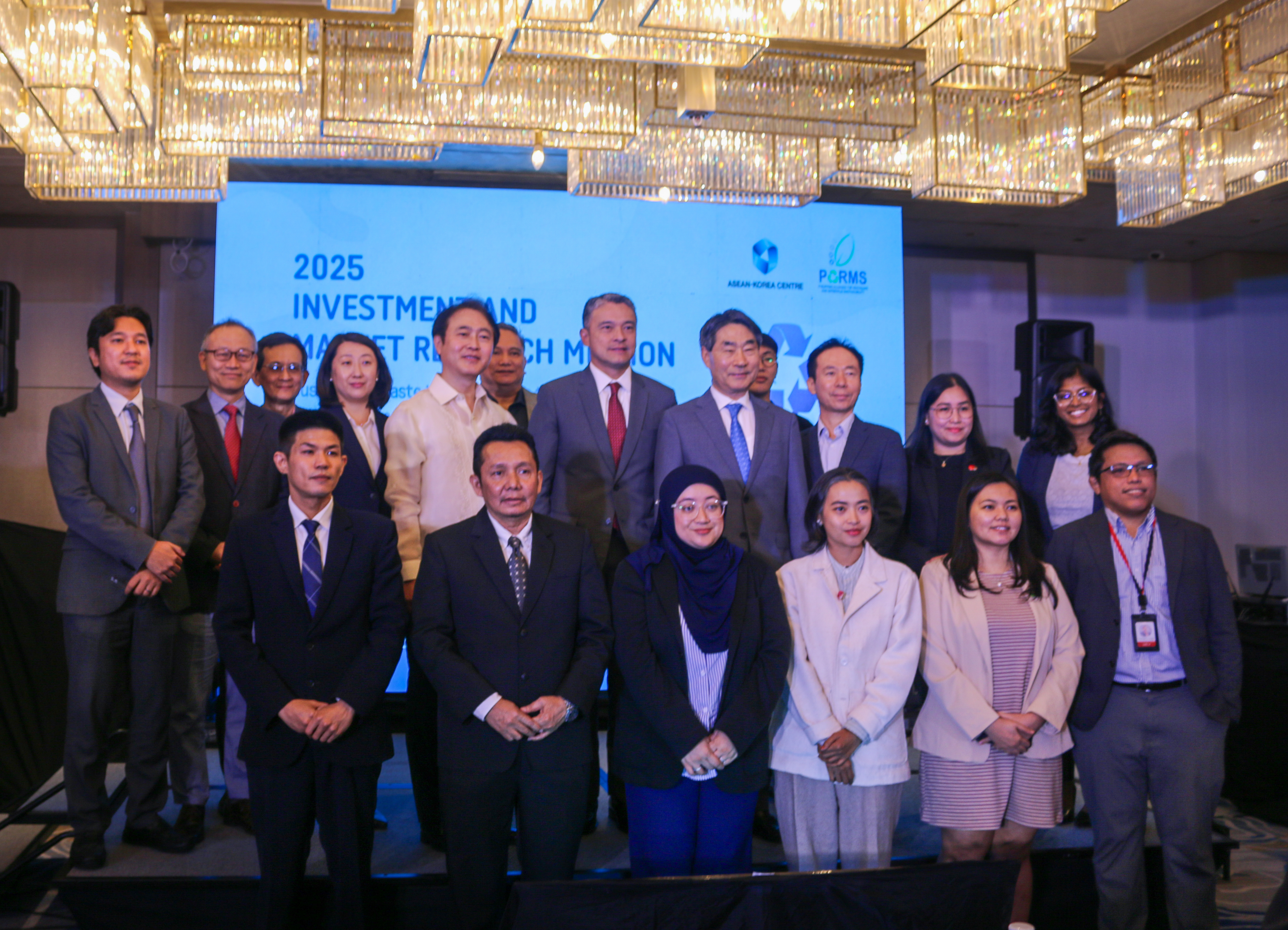
PEMSEA, through the Regional Project Management Unit of the ‘MOF/PEMSEA ODA Project on Reducing Marine Plastics in the East Asian Seas Region’, participated in the ASEAN-Korea Investment and Market Research Mission 2025, held in Manila from 3 to 4 July 2025.
The event was co-organized by the ASEAN-Korea Centre (AKC) and the Philippine Alliance for Recycling and Materials Sustainability (PARMS), with the objective of strengthening regional cooperation in sustainable waste management and accelerating the transition toward a circular economy.
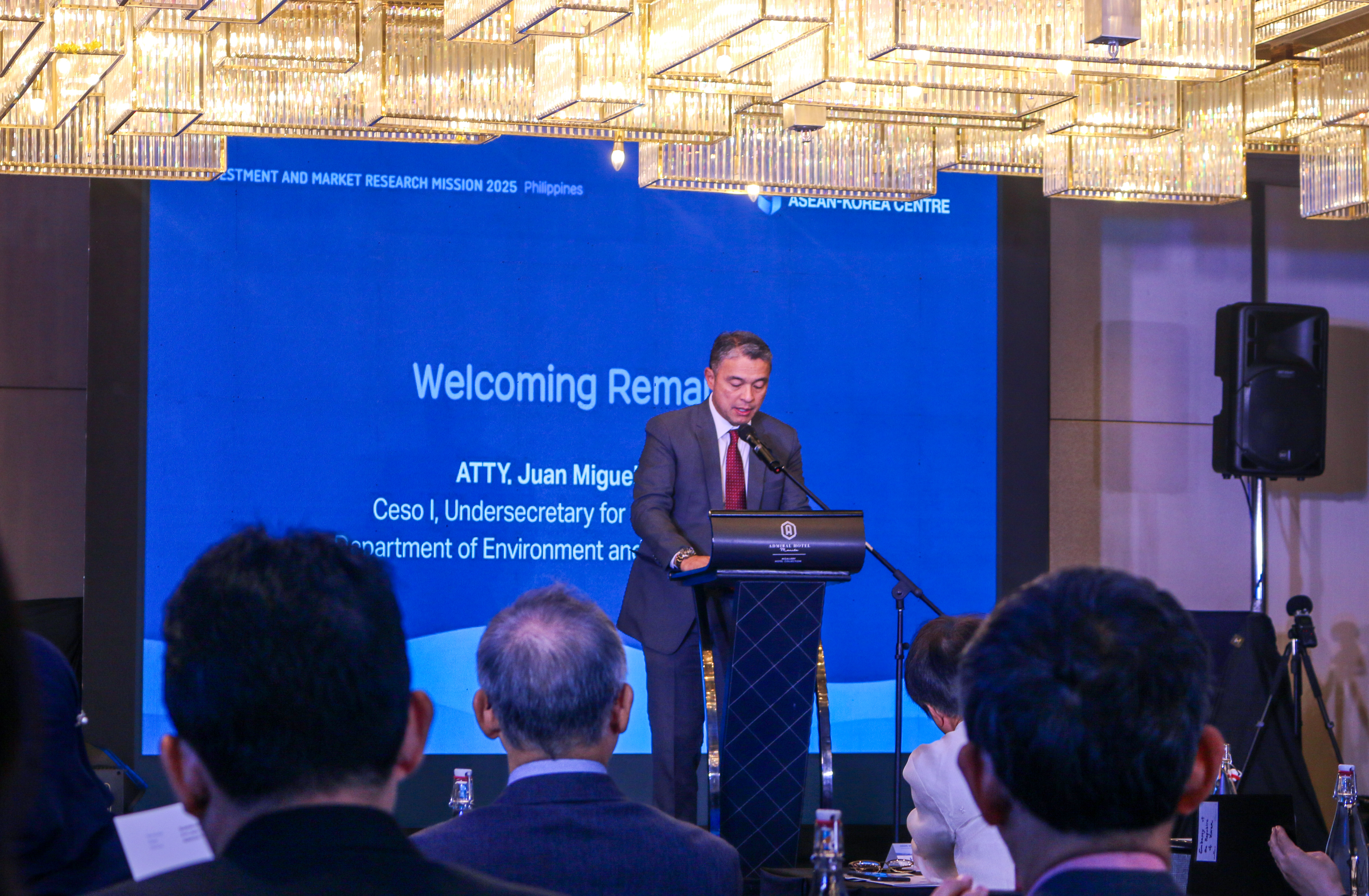
In his welcome remarks, DENR Undersecretary Atty. Juan Miguel Cuna stressed the urgency of embedding the circular economy into different sectors through policies, innovation, and multi-stakeholder collaboration. He reaffirmed the Philippine government’s commitment to sustainable waste management by promoting systems for resource reuse and reduction while advancing climate-resilient and inclusive growth.
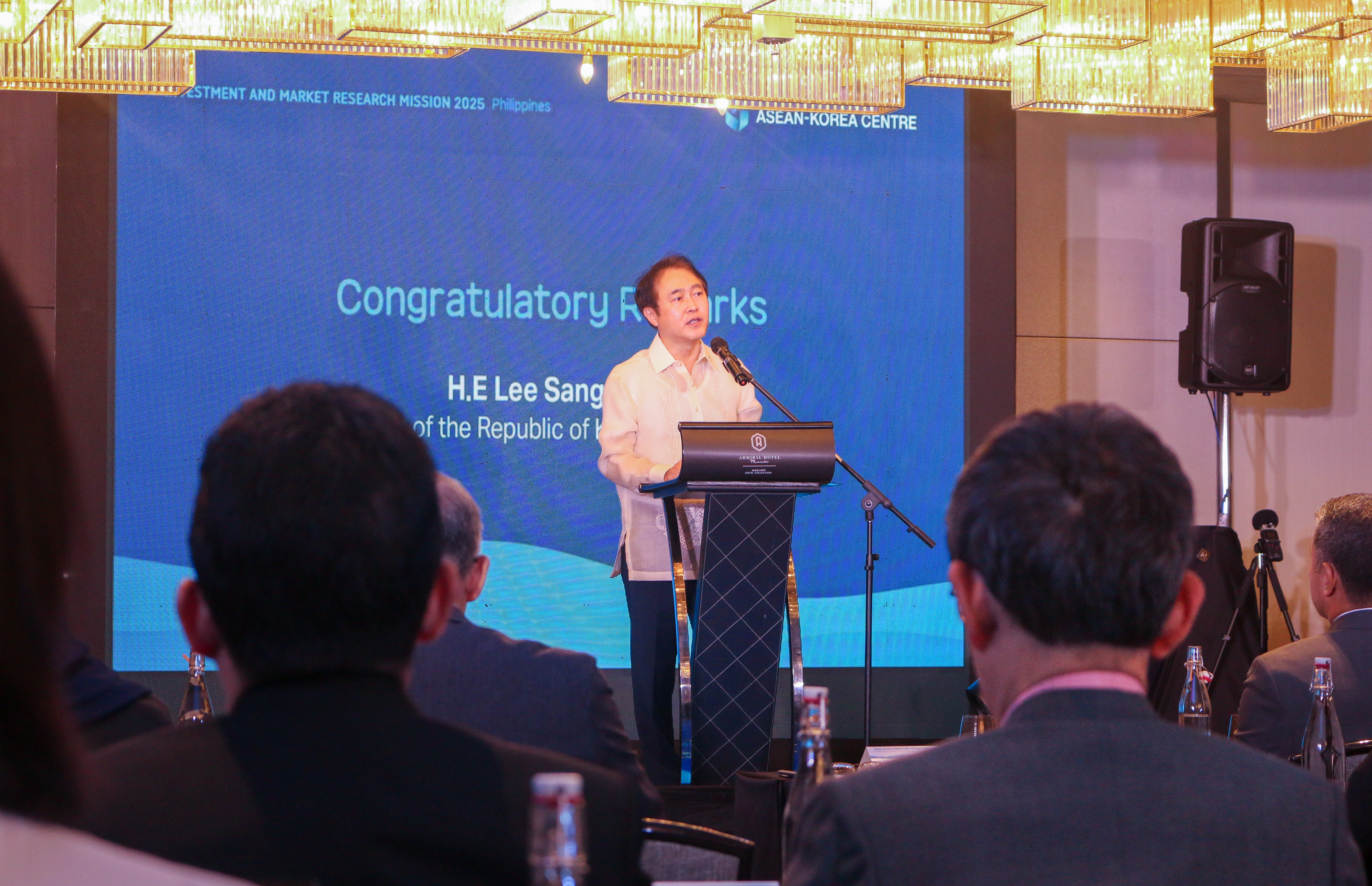
H.E. Lee Sang-hwa, Republic of Korea Ambassador to the Philippines echoed this call, framing marine protection as a shared regional responsibility. Drawing from personal experiences in the Philippines, he emphasized the pressing threat of marine waste to local communities and highlighted Korea’s continued cooperation with ASEAN through PEMSEA and initiatives such as the Our Ocean Conference held in Busan last April.
He underscored that environmental protection and economic progress must go hand in hand, and that innovation, regulation, and investment are key to building resilient waste management systems.
Waste to Wealth
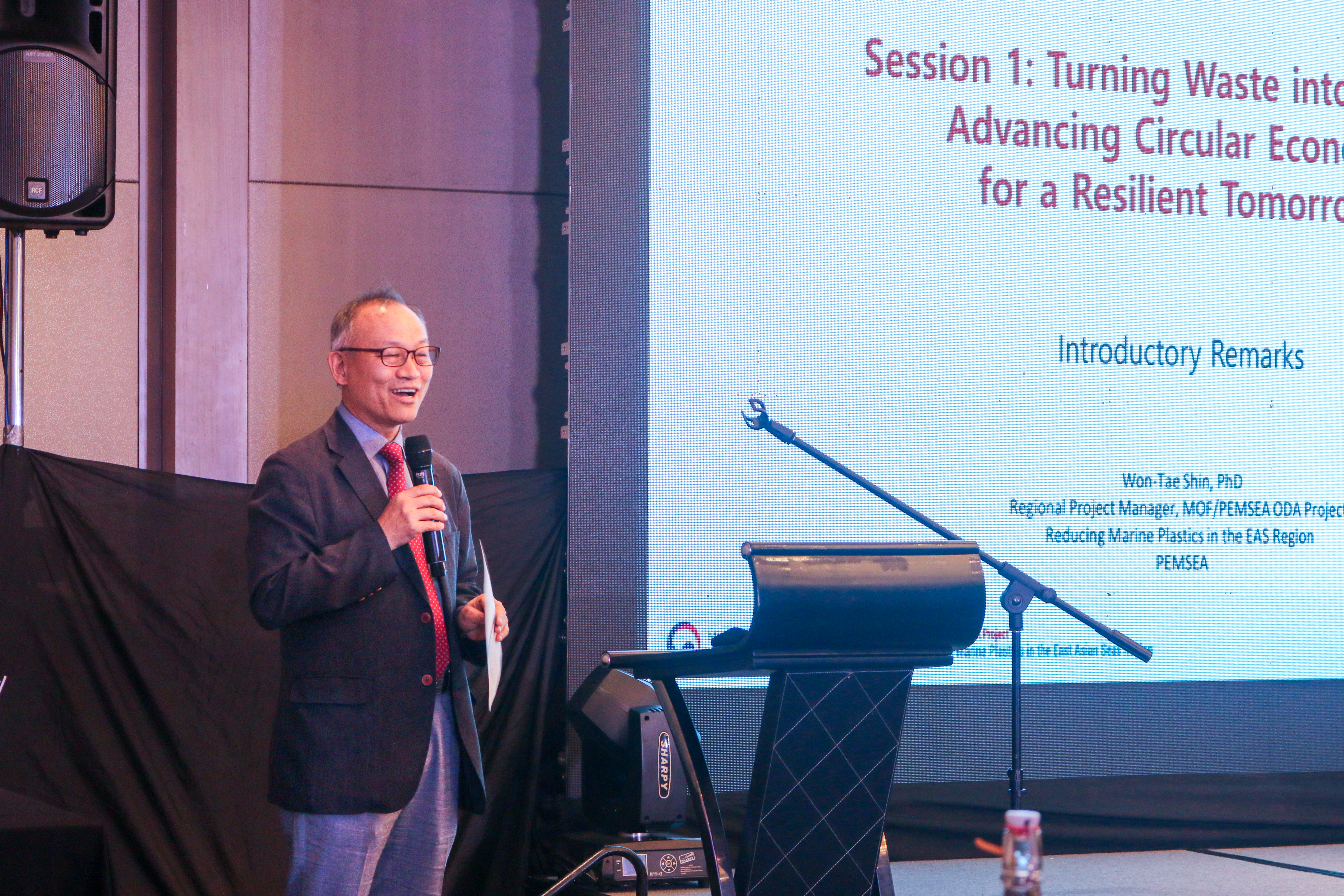
The first session, “Turning Waste into Wealth: Advancing Circular Economy for a Resilient Tomorrow,” was moderated by Dr. Won-Tae Shin, Regional Project Manager MOF/PEMSEA ODA Project on Reducing Marine Plastics in the East Asian Seas Region.
In his introductory remarks, Dr. Shin highlighted integration of plastics into modern economies and cautioned against oversimplified solutions such as outright bans. He pointed to the economic barriers that limit the viability of recycling, emphasizing that without targeted government intervention and market-enabling policies, circular economy systems may struggle to scale.
He urged governments to consider options such as public financing, incentives, and blended finance, citing the Asian Development Bank’s blue finance as one avenue.
He also discussed PEMSEA’s ongoing projects supported by the Korean Ministry of Oceans and Fisheries, including the Marine Plastics ODA Project in the Philippines and Timor-Leste. In addition, he highlighted PEMSEA’s work on Integrated River Basin Management, emphasizing the importance of upstream waste control. He affirmed PEMSEA’s commitment to providing technical guidance and supporting member countries with practical solutions tailored to their needs.
Dr. Shin also pointed to ongoing international efforts, such as the global plastic treaty discussions, and emphasized the need for governments to think carefully and hard about how to transform waste into wealth.
The session featured country-level presentations from across ASEAN, showcasing diverse policy pathways and technological approaches adapted to national capacities.
Communities, Experts Leading the Change
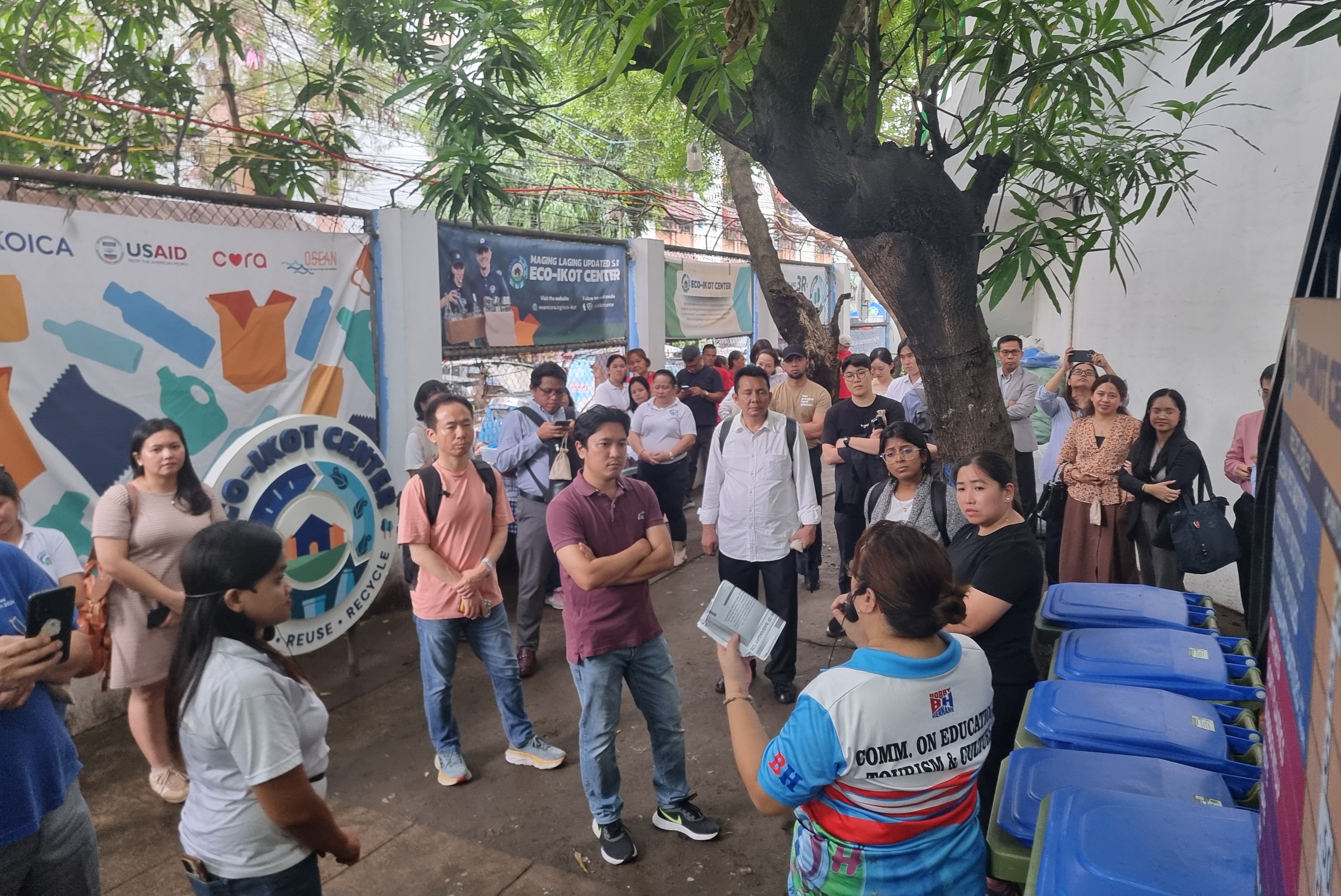 |
Participants tour Barangay 128 or Paradise Heights, a community formerly known as Smokey Mountain in Tondo, Manila, once a fishing village in the 1960s, later transformed into a dumpsite for four decades, symbolizing Manila’s deepening poverty and waste crisis. Today, it hosts community-driven recycling and sustainability initiatives.
Photo courtesy of ASEAN-Korea Centre
The delegation toured the CORA Eco-Ikot Center at Smokey Mountain in Manila, an area historically associated with informal waste picking and urban poverty where they witnessed an inclusive, community-led recycling system in action.
The participants learned from residents how to exchange clean, segregated recyclables for redeemable points that can be used to purchase fresh produce, digital cash, and other essential goods. The participants saw locally adaptable solutions to plastic waste while supporting household resilience and sustainable livelihoods.
Participants on-board the Circular Explorer.
Photo courtesy of ASEAN-Korea Centre
They also boarded the Circular Explorer, a solar-powered floating laboratory docked in Manila Bay. Operated in collaboration with One Earth – One Ocean, Holcim Foundation, and academic partners such as the UP Marine Science Institute, the vessel showed how science, technology, and education can converge to address marine pollution.
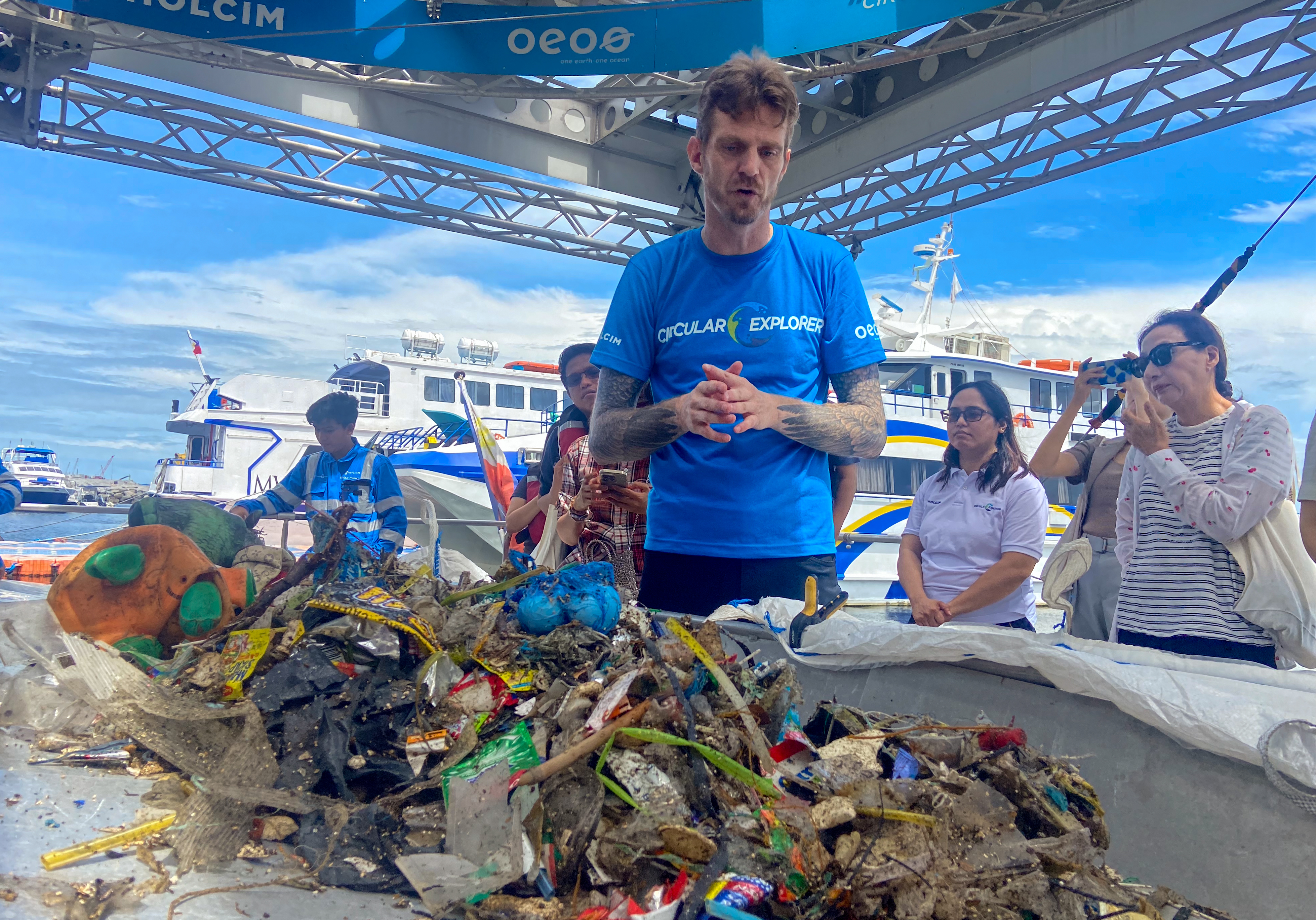
Equipped with real-time sensors and microplastic filters, the Circular Explorer generates critical data to inform national water quality monitoring and recycling policy. The visit also highlighted the role of artificial intelligence in improving waste categorization, and the vessel’s efforts to train early-career researchers and citizen scientists in ocean health and marine litter monitoring.
Financing Circular Futures
The event aimed to strengthen regional cooperation on sustainable waste management and catalyze investments in circular economy innovations across Southeast Asia.
With a growing waste management market projected to nearly double by 2032, the event highlighted that cross-sector collaboration, technology adoption, and inclusive community engagement are central to building a circular, resilient future for the region.
PEMSEA joined government officials and private sector representatives from the Republic of Korea and ASEAN member states including Brunei Darussalam, Singapore, Indonesia, Malaysia, and the Philippines.
The two-day event also brought together key organizations, working on combatting marine plastics pollution, including Our Sea of East Asia Network (OSEAN), Korea International Cooperation Agency (KOICA), Communities Organized for Resource Allocation (CORA), the Asian Development Bank (ADB), and the ASEAN Circular Economy Stakeholder Platform.

